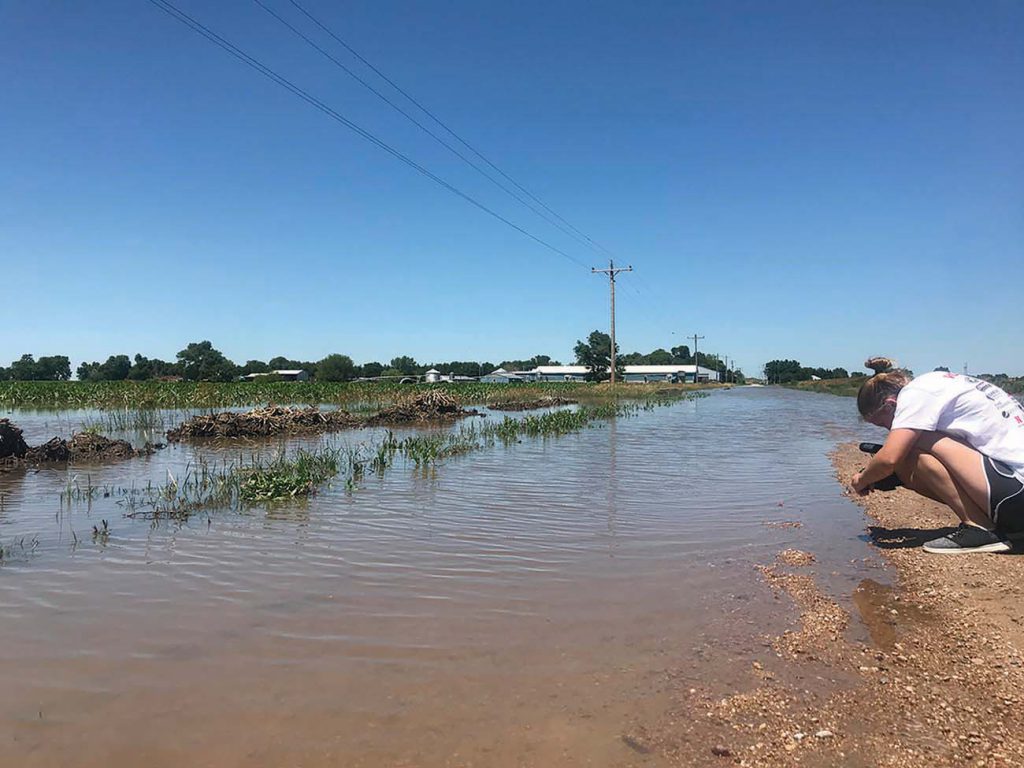
Students Capture Flood Recovery Stories
Catastrophic flooding devastated Nebraska in 2019, killing four people, inundating communities, causing more than $3 billion in damage to homes, farms, businesses and infrastructure and changing some lives forever.
For eight College of Journalism and Mass Communications undergraduates who worked on the Flood Feed Media initiative, reporting on these dismal tales and recovery had a silver lining: hands-on experience with what project leader Jennifer Sheppard called “the emotional part of journalism.”
“I can tell a student how to do an interview,” said Sheppard, assistant professor of practice in journalism. “But when you’re talking to someone whose house flooded, you have to learn compassion on the fly. You have to have something in your eyes that’s empathetic.”
Participants selected for the summerlong service project funded by the college and Nebraska Extension also immersed themselves in the technical side of their craft. They honed writing, interviewing, photography and video skills that will power their careers.

Traveling the state, they captured stories of flood recovery efforts, such as the rehabilitation of an in-home daycare in Osmond, the Quail Run Golf Course in Columbus and many farms, ranches and homes. They covered efforts in Spencer and Lynch, two hard-hit northern Nebraska towns, to secure safe drinking water after the 92-year-old Spencer Dam broke, leaving the towns’ water espresso-colored and unusable.
Student journalists also explored the factors fueling the disaster, gaining valuable experience in navigating powerful clashes between journalism, science and politics.
“It’s impossible to tell the story of the floods without talking about climate change,” said junior Nick McConnell, Flood Feed’s news director and a Lincoln native. “But this is a tough state to do that in, particularly in the areas we were visiting. We learned to bring it up in the most roundabout ways we could. Learning about different views in the state was really meaningful.”
The students’ work, which includes a capstone documentary, is published on the Flood Feed Media website. Local media picked up some stories, and Nebraska 4-H showcased the documentary at the Nebraska State Fair.
+ Additional content for Students Capture Flood Recovery Stories
Nebraska news release: Nebraska students begin flood serviceship projects
